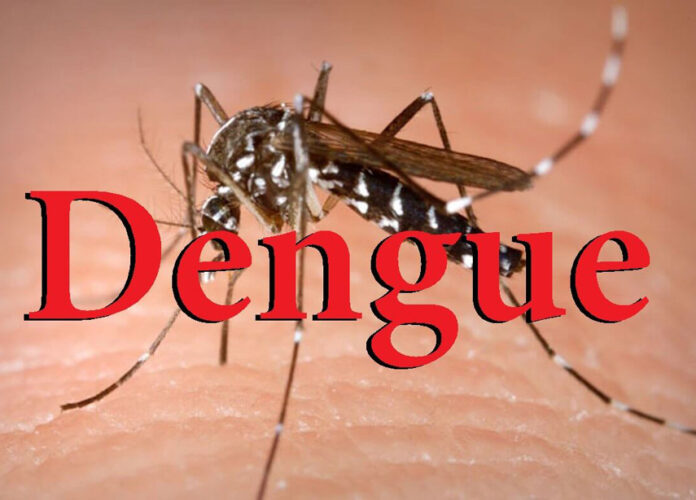The Epidemiology and Investigation Section of the Department of Public Health informs the public that they are observing a slight increase in suspected cases of dengue in Aruba, based on data received from a new surveillance system that monitors symptoms reported by household doctors, and laboratory results confirming positive cases.
This increase is also occurring in the region where different countries are reporting an increase in suspected cases of dengue. Despite the dry season with little rainfall, the GKMB section also reports finding breeding grounds for mosquitoes around homes, particularly near residents who collect water for plants or mosquito breeding sites. The containers most commonly found as mosquito breeding grounds are flowerpots and containers with water.
To stop the transmission of the dengue virus, it is necessary to reduce or stop the breeding of mosquitoes. This can be done by:
• Removing or storing all objects that can retain water indoors and around homes, schools, workplaces, and elsewhere. For example, emptying containers under plants, discarding tires, toys left outside, flower vases, and more;
• Covering all collected water in neighborhoods or homes;
• Inspect all objects inside and outside homes that can have standing water (such as flowerpots, pet water bowls, etc.) for mosquito larvae.
Protect yourself from dengue by:
• Wearing long-sleeved shirts and long pants during the late afternoon and evening hours;
• Using mosquito repellent on exposed skin;
• Lighting a mosquito coil or using a mosquito repellent indoors;
• Closing doors and windows before dusk or using screens;
• Avoiding visiting areas where you are aware there are many mosquitoes;
• Spraying indoors, rooms, offices, and areas you regularly frequent with mosquito-killing products.
Protect others around you when you have dengue symptoms or have dengue by:
• Visiting your household doctor to confirm if you have dengue and avoid being bitten by mosquitoes. The symptoms include:
• Fever
• Headache
• Nausea or vomiting
• Diarrhea
• Pain in the back, joints, and muscles (body aches)
• Eye pain
• Rash
If you have one or more of the above symptoms, see your GP for an evaluation. It is important to inform your doctor when you start feeling unwell so that appropriate laboratory tests can be done. If your doctor diagnoses you as a suspected case of dengue, note the following:
• Avoid being bitten by mosquitoes
• Paracetamol is the only medicine you can take; other pain relievers can cause bleeding (such as ibuprofen, diclofenac, etc.)
• Drink plenty of fluids to stay hydrated
• Rest as much as possible
In the next press release, DVG will provide more details on dengue cases in Aruba. For more information, like the Facebook page Directie Volksgezondheid DVG Aruba, follow DVG on Instagram at directie_volksgezondheid_aruba, visit the website www.dvg.aw, call them at 5224200, or email at [email protected].







